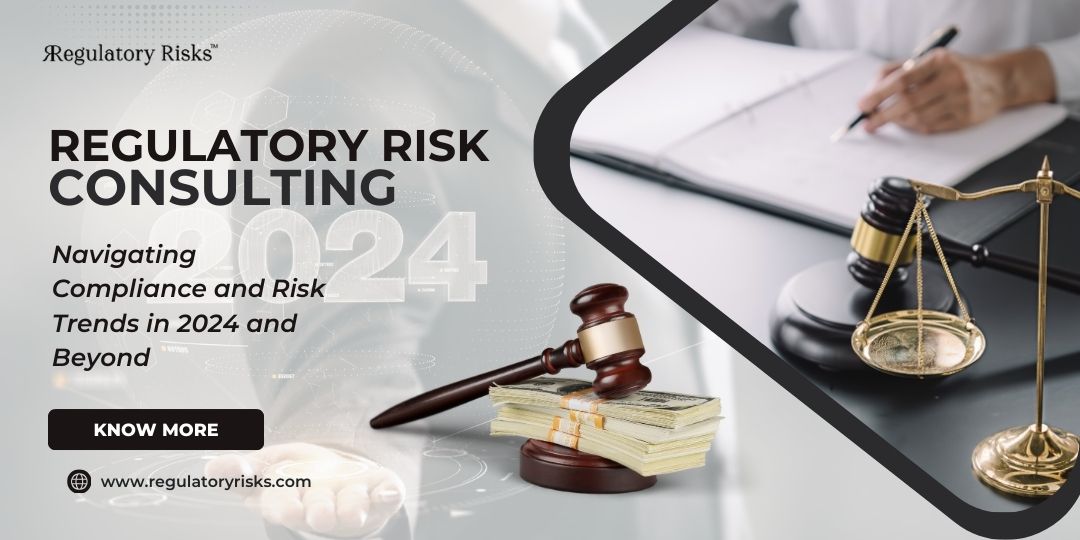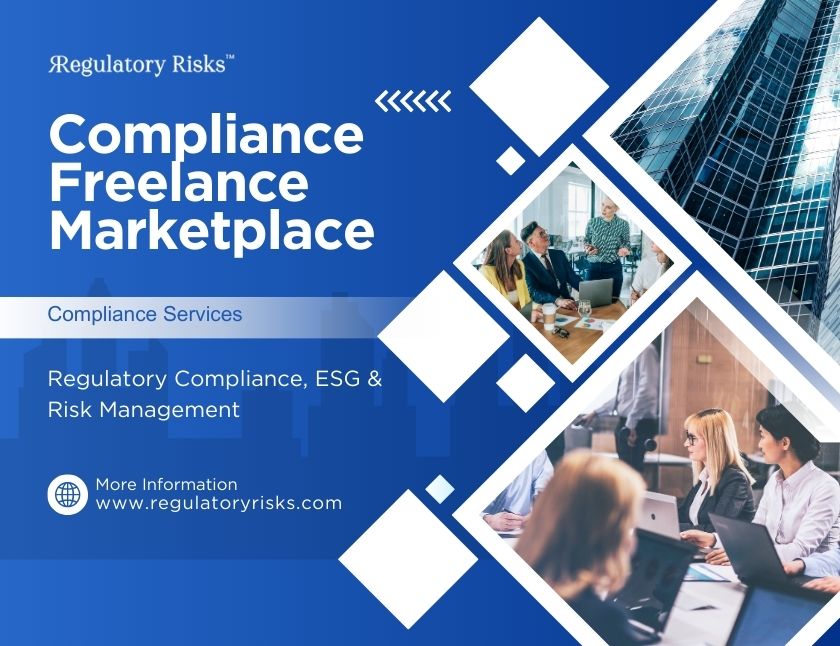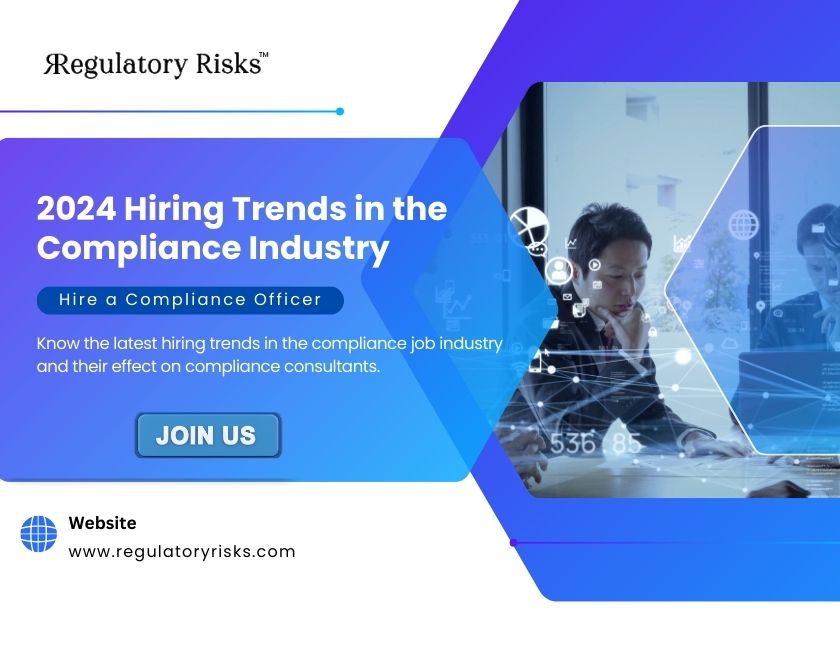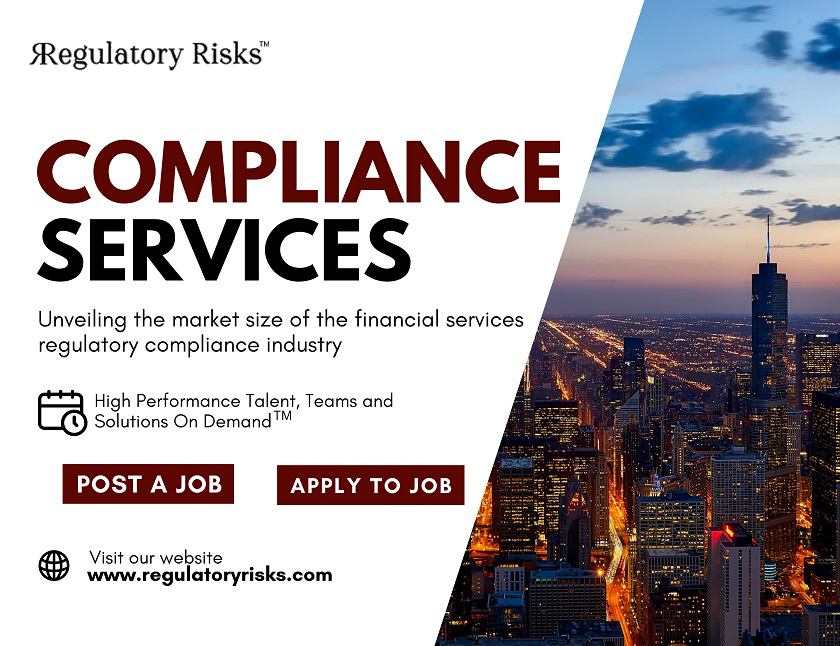In the ever-evolving landscape of regulatory compliance, businesses must stay ahead of emerging trends and potential enforcement actions. For 2024, key themes in regulatory risk consulting include heightened scrutiny of environmental, social, and governance (ESG) standards, the impact of technology on compliance processes, and the increasing complexity of global regulations. Further, as we look toward 2025, companies should prepare for significant regulatory changes and potential enforcement actions. Therefore, this article explores these themes and highlights the advantages of engaging regulatory compliance consultants through freelance marketplaces such as Regulatory Risks.
Regulatory Compliance and Risk Themes for 2024
Heightened Focus on ESG Standards
Environmental, social, and governance (ESG) considerations have become central to regulatory frameworks worldwide. Additionally, regulators are increasingly holding companies accountable for their ESG practices. Therefore, pushing for greater transparency and stricter reporting standards.
Key Considerations:
Environmental Impact: Companies must demonstrate their commitment to reducing carbon footprints. Further, adopting sustainable practices.
Social Responsibility: Initiatives related to diversity, equity, inclusion, and human rights are under increased scrutiny.
Governance: Strong governance structures and ethical business practices are paramount.
Technological Advancements in Compliance
The integration of advanced technologies such as artificial intelligence (AI), machine learning, and blockchain is transforming regulatory compliance processes. Additionally, these technologies enhance the ability to monitor, analyze, and report compliance activities.
Key Considerations:
AI and Machine Learning: This is used for predictive analytics, fraud detection, and automated reporting.
Blockchain: Further, it enhances transparency and traceability in transactions, crucial for sectors like finance and supply chain management.
Data Analytics: Additionally, it improves risk assessment and decision-making processes.
Global Regulatory Complexity
With the globalization of businesses, companies face a labyrinth of regulations across different jurisdictions. Further, this complexity necessitates a comprehensive and nuanced approach to compliance.
Key Considerations:
Cross-Border Regulations: Navigating different regulatory requirements in various countries.
Data Privacy Laws: Additionally, ensuring compliance with regulations like GDPR, CCPA, and others.
Sector-Specific Regulations: Moreover, adhering to industry-specific guidelines, particularly in finance, healthcare, and technology sectors.
Preparing for Regulatory Changes in 2025
As we move toward 2025, businesses should anticipate significant regulatory changes, particularly in areas like data privacy, cybersecurity, and financial crime.
Data Privacy and Protection
New Regulations: Expect more stringent data privacy laws globally, with stricter penalties for non-compliance.
Consumer Rights: Moreover, enhanced rights for consumers regarding their personal data. Thus, requiring businesses to implement robust data protection measures.
Cybersecurity
Increased Standards: Higher cybersecurity standards and mandatory reporting of data breaches.
Third-Party Risk Management: Further, greater emphasis on managing risks associated with third-party vendors.
Financial Crime
AML and KYC: Tighter anti-money laundering (AML) and know your customer (KYC) regulations.
Crypto Regulations: Moreover, specific guidelines for cryptocurrencies and virtual assets to prevent financial crimes.
Potential Enforcement Actions
Regulators are likely to increase enforcement actions, particularly targeting non-compliance with ESG standards, data privacy, and financial crime regulations.
Key Focus Areas:
ESG Violations: Penalties for inadequate ESG disclosures and failure to meet environmental standards.
Data Breaches: Further, significant fines for data breaches and inadequate data protection measures.
Financial Crimes: Additionally, stringent actions against money laundering, fraud, and non-compliance with KYC regulations.
The Role of Regulatory Risk Consulting
Risk & Regulatory Advisory
Regulatory risk consulting firms play a crucial role in helping businesses navigate these complex and dynamic regulatory environments. Moreover, they provide strategic advice, compliance frameworks, and risk management solutions tailored to specific industry needs.
Services Offered:
Risk Assessment: Identifying and assessing potential regulatory risks.
Compliance Programs: Moreover, developing and implementing comprehensive compliance programs.
Training and Education: Conducting training sessions for employees on compliance best practices.
Monitoring and Reporting: Additionally, continuous monitoring and reporting of compliance activities.
Regulatory Risk Advisory
Regulatory risk advisory services focus on proactive risk management, ensuring that businesses are prepared for regulatory changes and enforcement actions.
Services Offered:
Regulatory Change Management: Keeping businesses informed about regulatory changes and advising on necessary adjustments.
Crisis Management: Providing support during regulatory investigations and enforcement actions.
Strategic Planning: Assisting in long-term strategic planning to ensure ongoing compliance.
Regulatory Compliance Consultancy
Regulatory risk consulting services are essential for businesses to develop and maintain effective compliance programs.
Services Offered:
Policy Development: Creating and updating compliance policies and procedures.
Audit and Assessment: Conduct regular audits to ensure compliance with regulations.
Third-Party Risk Management: Managing risks associated with third-party vendors and partners.
Advantages of using regulatory compliance consultants from a freelance marketplace
Engaging regulatory risk consulting through a freelance marketplace like Regulatory Risks offers several advantages.
Access to a Diverse Talent Pool
Freelance risk & regulatory marketplaces provide access to a wide range of regulatory compliance consultants with varied expertise and experience. Further, businesses can find consultants specializing in specific regulatory areas, ensuring they get the right expertise for their needs.
Flexibility and Scalability
Freelance regulatory risk consulting marketplaces offer flexibility in engagement models, allowing businesses to hire consultants on a project basis, part-time, or full-time. This flexibility ensures that businesses can scale their compliance efforts according to their needs and budgets.
Cost-Effectiveness
Hiring a full-time regulatory compliance consultancy can be expensive. Freelance compliance jobs provide a cost-effective alternative without compromising on quality.
Businesses can engage highly skilled consultants for specific projects, reducing overhead costs.
Quick Access to Expertise
Freelance Risk & Regulatory marketplaces streamline the process of finding and hiring compliance consultants. Businesses can quickly browse consultant profiles, review their qualifications, and select the right consultant for their needs. The platform facilitates seamless communication, contract management, and payment processes, ensuring a smooth and efficient engagement.
Quality Assurance
Reputable freelance marketplaces often have rigorous vetting processes to ensure the quality and reliability of consultants. This provides businesses with confidence in the expertise and professionalism of the consultants they engage.
In 2024, the regulatory compliance landscape will continue to evolve, with a heightened focus on ESG standards, technological advancements, and global regulatory complexity. As we look toward 2025, businesses should prepare for significant regulatory changes and potential enforcement actions.
Regulatory risk consulting firms play a crucial role in helping businesses navigate these challenges by providing strategic advice, compliance frameworks, and risk management solutions. Engaging regulatory compliance consultants through freelance marketplaces like Regulatory Risks offers several advantages, including access to a diverse talent pool, flexibility, cost-effectiveness, quick access to expertise, and quality assurance.
As the regulatory environment becomes more complex, businesses must stay proactive in their compliance efforts. Leveraging the expertise of freelance compliance professionals and utilizing the advantages of freelance marketplaces can significantly enhance their ability to navigate regulatory challenges, mitigate risks, and ensure robust compliance practices.
In conclusion, the dynamic nature of the regulatory landscape necessitates a strategic approach to compliance. By harnessing the expertise of freelance compliance professionals and leveraging the advantages of freelance regulatory compliance consultancy marketplaces, businesses can achieve robust compliance, safeguard their operations, and thrive in their respective industries.




